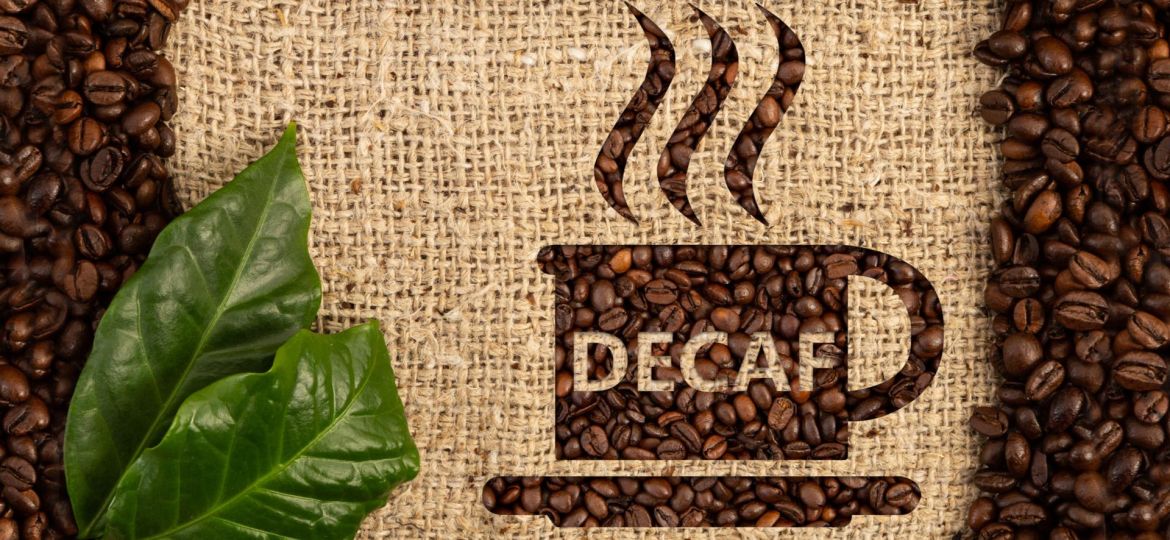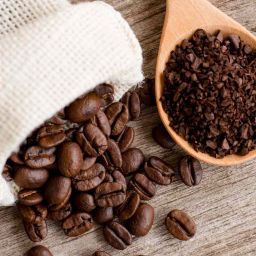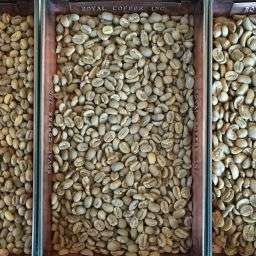
Selecting high-quality decaf beans for espresso is paramount for those who love coffee but are sensitive to caffeine. The decaffeination process can significantly impact the bean’s flavor profile, making the choice of beans critical. High-quality decaf espresso beans ensure that the essence of the espresso—its rich aroma and complex flavors—remains intact, despite the absence of caffeine.
The process involves removing caffeine from coffee beans while trying to preserve as much flavor as possible. Methods vary, from using chemical solvents to using water or carbon dioxide, each affecting the bean’s taste differently.
The Swiss Water Process
The Swiss Water Process stands out as a preferred method for decaffeinating coffee beans, especially for espresso. This chemical-free process relies on solubility and osmosis to decaffeinate coffee beans, ensuring that no artificial chemicals interfere with the natural coffee flavors. It begins with green coffee beans being soaked in hot water, which dissolves the caffeine.
Then, the water is passed through a charcoal filter, which catches caffeine molecules but allows oils and flavor molecules to pass through. Beans are then reintroduced to this flavor-rich water, allowing them to reabsorb their natural essences minus the caffeine. This method is celebrated for its ability to preserve the bean’s original flavor profile, making it ideal for high-quality espresso beans.
Arabica vs. Robusta Beans
The choice between Arabica and Robusta beans is crucial when selecting decaf espresso beans. Arabica beans are prized for their smooth, complex flavor profiles, featuring a wide range of notes from sweet and fruity to tangy and wine-like. They generally contain less caffeine than Robusta beans, making them more suitable for decaffeination.
Robusta beans, on the other hand, are known for their strong, harsher flavors and higher caffeine content. They often impart a more bitter taste, which can be accentuated during the decaffeination process. For decaf espresso, Arabica beans are preferred for their superior flavor and gentler nature post-decaffeination.
Best Decaf Coffee Beans for Espresso – Top Picks
Volcanica Espresso Decaf Coffee
Origin: Sourced from volcanic regions known for rich soil Roast Level: Dark Flavor Profile: Rich and bold, without the bitterness typically associated with decaf Process: Swiss Water Process, ensuring chemical-free decaffeination Special Features: Organic, ensuring no chemical inputs in its cultivation
Lavazza Dek Decaffeinated Espresso
Origin: Italy Roast Level: Medium to dark, tailored for espresso Flavor Profile: Creamy and full-bodied, with a balanced taste Process: Uses a natural decaffeination method Special Features: Blended from premium Arabica and Robusta beans, offering a classic Italian espresso experience
Lifeboost Decaf Espresso
Origin: Single-origin from the mountains of Central America Roast Level: Medium, perfect for preserving flavor nuances Flavor Profile: Smooth and low-acid, with hints of chocolate and fruit Process: Swiss Water Process, ensuring a 100% chemical-free decaffeination Special Features: Organic and mycotoxin-free, highlighting its purity and quality
Each of these decaf coffee beans offers a unique experience tailored to espresso lovers who prefer or require a caffeine-free option. From the rich and volcanic soil nurtured Volcanica Espresso Decaf to the classic Italian blend of Lavazza Dek, and the pure, health-conscious choice of Lifeboost Decaf Espresso, there’s a decaf bean suited to every palate and preference.
How to Choose the Best Decaf Espresso Beans
Choosing the best decaf espresso beans involves considering several crucial factors:
- Freshness: Always opt for the freshest beans. The roasting date on the package can be a good indicator. Freshly roasted beans will provide a richer flavor and aroma.
- Origin: The bean’s origin can significantly influence its flavor profile. Beans from different regions carry distinct tastes, from fruity and floral to nutty and chocolaty.
- Roast Level: The roast level affects the bean’s flavor and strength. Medium to dark roasts are ideal for espresso due to their fuller body and richer flavor.
- Decaffeination Process: Opt for beans decaffeinated through the Swiss Water Process or another chemical-free method. This preserves the bean’s natural flavors and health benefits.
- Special Features: Consider beans that are organic or single-origin if you are looking for a coffee with specific qualities or ethical standards.
Understanding these factors will help you select decaf espresso beans that not only meet your caffeine-free needs but also delight your taste buds with exceptional flavor and aroma.
Tips for Brewing the Perfect Decaf Espresso
To maximize flavor when brewing decaf espresso, it is essential to pay attention to grinding, tamping, and extraction. Grind your beans finely; decaf beans often require a finer grind than regular beans to achieve a full flavor extraction.
The grind size should resemble powdered sugar. Tamping is next; apply even pressure when tamping down the coffee in the portafilter to ensure a uniform extraction. About 30 pounds of pressure is recommended, but consistency is key.
Extraction time is crucial. Aim for a 25 to 30-second extraction to achieve the golden ratio of flavor. If the shot pulls too fast, try a finer grind or more firm tamp. If it pulls too slow, adjust in the opposite direction.
The water temperature should be between 195°F to 205°F for optimal extraction. Water quality cannot be overstated; use filtered water to avoid off-flavors caused by impurities.
FAQs
Q: How does decaf espresso differ from regular espresso? A: Decaf espresso offers the rich taste and creamy texture of regular espresso but without the caffeine kick. The decaffeination process can sometimes result in a slightly milder flavor and aroma profile.
Q: Does decaf espresso impact health differently than regular espresso? A: Decaf espresso provides a coffee experience with minimal caffeine, making it a suitable choice for those sensitive to caffeine or looking to reduce intake without significant health differences.
Q: How should decaf beans be stored for freshness? A: Store decaf beans in an airtight container at room temperature, away from direct sunlight, moisture, and heat. This helps preserve their freshness and flavor for a longer period.
Final Thoughts
Choosing and enjoying the best decaf coffee beans for espresso requires attention to detail, from selecting beans with the right flavor profile and freshness to mastering the brewing process. By focusing on the grind, tamp, extraction, and water quality, you can create a decaf espresso that rivals its caffeinated counterpart in richness and taste. Remember, the key to a great decaf espresso lies in the quality of the beans and the care taken during preparation.









